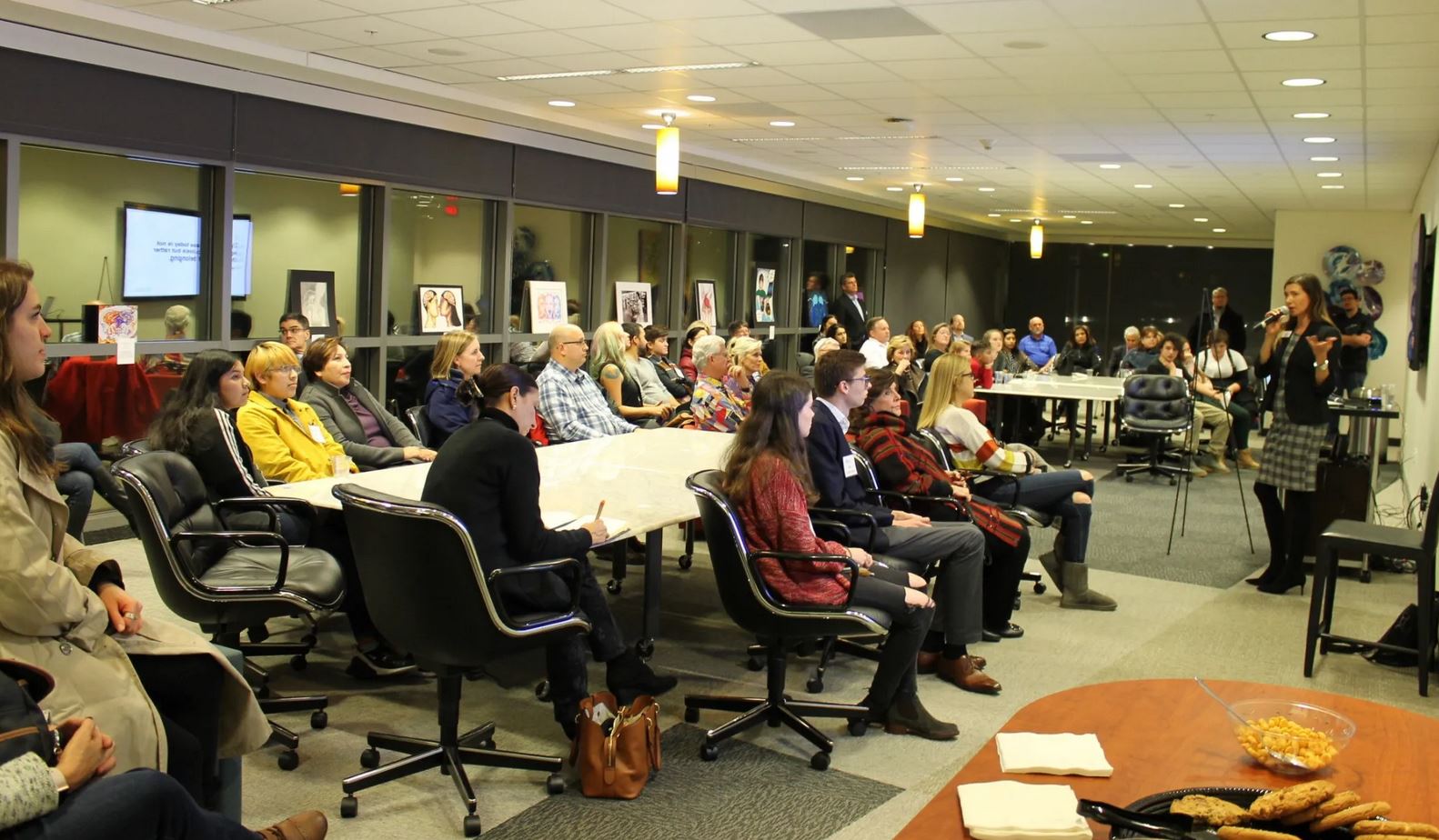Culture of Value Micro-grant Fuels Second Annual Art of Kindness Competition

Student art contest hosted by Kindness Enterprise at the Center for BrainHealth, in collaboration with ATEC and Computer Science – all with UT Dallas
The City of Dallas Office of Arts and Culture has awarded a Culture of Value micro-grant to a UT Dallas coalition to carry out the second annual Art of Kindness competition. This art contest is hosted by the Kindness Enterprise, a research and translational initiative of the Center for BrainHealth® at The University of Texas at Dallas, in cross-disciplinary collaboration with the School of Arts, Technology and Emerging Communications (ATEC) and the Department of Computer Science (CS).
While many people would agree that being kind is a good thing, few know that scientific evidence has demonstrated that kindness can enhance your brain health.
“The Art of Kindness is an opportunity for students of all backgrounds and disciplines to engage with neuroscience in a way that is tangible,” said Julie Fratantoni, Ph.D., lead neuroscientist for the Kindness Enterprise.
Karen Doore, Assistant Professor of Instruction at CS; Liz Trosper, Assistant Professor of Instruction at ATEC; Andrew Scott, Associate Professor at ATEC; and graduate student research assistant Caroline Culver all collaborated with Dr. Fratantoni to weave together art and neuroscience into a contest that will stretch students and provide a unique and creative interdisciplinary experience.
This year, the contest challenges students to create artwork using three main ingredients:
- A neuroscience of kindness concept (ex: connectivity, mirror neurons, reward system)
- A few art synectic prompts (ex: combine, symbolize, distort)
- A single word that describes the student’s experience with the COVID-19 pandemic
Dr. Fratantoni added, “Given the incredible stress the COVID-10 pandemic is having on students, the Art of Kindness provides a framework for them to reflect and process their experience.”
The Culture of Value micro-grants support artists, arts and culture organizations whose primary programming and services center around an ALAANA experience or culture (ALAANA stands for an underserved community including people of African, Latinx, Asian, Arab, Native American, Native Hawaiian and Pacific Islander ancestry). These Arts Endowment funds are granted to execute projects that provide a service to the residents of Dallas. The projects must further the “Culture of Value” and underscore ways in which the arts are essential to a thriving, equitable society throughout Dallas.
The 2020 Art of Kindness competition will apply the grant funding towards developing an open educational resource about computer science, arts and brain health featuring ALAANA artists, producing a web-based artist talk series, and funding prizes for the three contest winners.
The contest, which runs from October 1 to October 31, is open to Dallas-area college and high school students. Winners will be announced on November 12, in celebration of World Kindness Day. For more information and to see last year’s winning artwork, please visit .
About Center for BrainHealth
The part of The University of Texas at Dallas, is a research institute committed to enhancing, preserving and restoring brain health across the lifespan. Scientific exploration at the Center for BrainHealth is leading edge, improving lives today and translating groundbreaking discoveries into practical clinical application. By delivering science-based innovations that enhance how people think, work and live, the Center and its Brain Performance Institute™ are empowering people of all ages to unlock their brain potential. Major research areas include the use of functional and structural neuroimaging techniques to better understand the neurobiology supporting cognition and emotion in health and disease.
Source | Center for BrainHealth® at The University of Texas at Dallas
ABOUT THE UT DALLAS COMPUTER SCIENCE DEPARTMENT
The UT Dallas Computer Science program is one of the largest Computer Science departments in the United States with over 3,600 bachelors-degree students, more than 800 master’s students, 160Ph.D. students, 51 tenure-track faculty members, and 44 full-time senior lecturers, as of Fall 2020. With the University of Texas at Dallas’ unique history of starting as a graduate institution first, the CS Department is built on a legacy of valuing innovative research and providing advanced training for software engineers and computer scientists.




